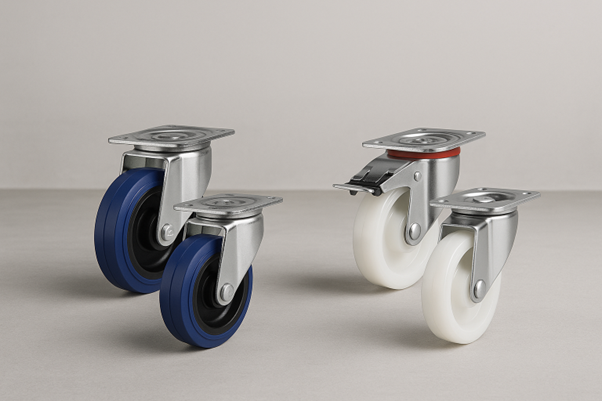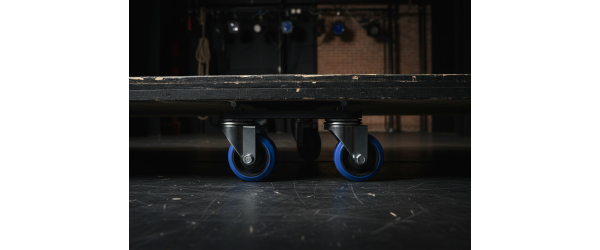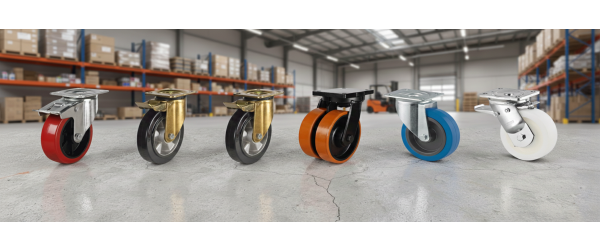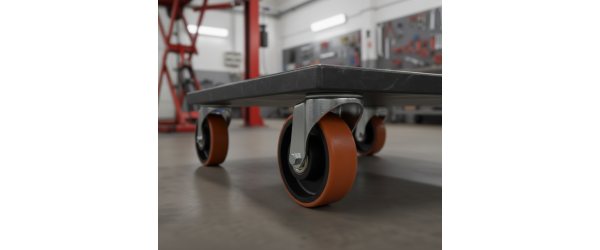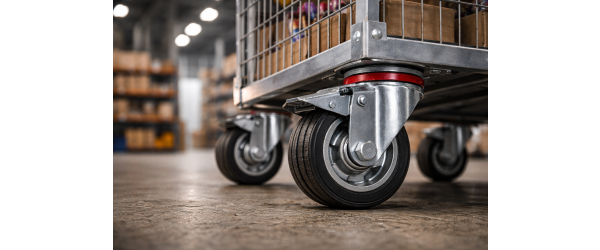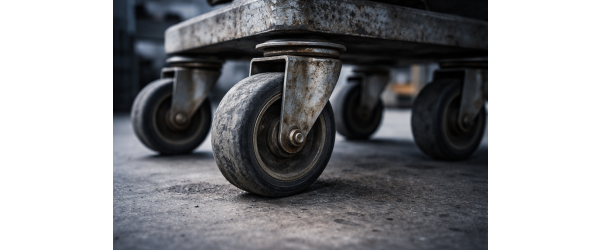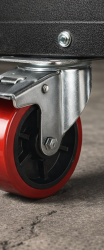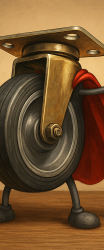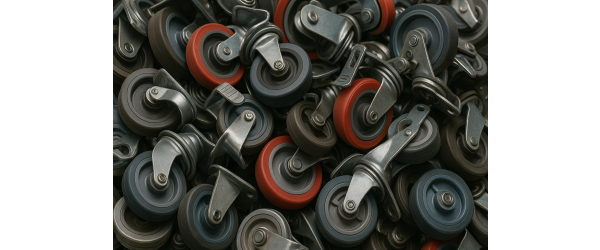When selecting wheels for castors, trolleys, or industrial applications, choosing the right material can significantly affect performance, safety, and longevity. Among the most popular options on the market today are blue elastic rubber wheels and white nylon wheels. But which is best suited to your needs?
At Castors Online, we understand that every application demands a careful balance of strength, maneuverability, and resistance. In this guide, we’ll compare the properties of blue elastic rubber and white nylon wheels, helping you determine the ideal solution for your operation.
Blue Elastic Rubber Wheels: Comfort and Versatility
Blue elastic rubber wheels are renowned for their combination of durability and user-friendly performance. Made from high-quality elastic rubber bonded to a robust core, these wheels are particularly suited to uneven surfaces and sensitive environments.
Key Advantages:
- Superior Shock Absorption: Blue elastic rubber wheels absorb vibrations, making them ideal for applications where delicate loads must be transported.
- Quiet Operation: These wheels are significantly quieter than their nylon counterparts, making them ideal for hospitals, schools, and office environments.
- Non-Marking Tyres: The blue rubber material does not leave marks on floors, protecting surfaces in clean or aesthetic-sensitive spaces.
- Floor Protection: Their elastic properties mean less stress is applied to floors, which is especially important on tiled or wooden surfaces.
Typical applications include hotels, hospitals, food service trolleys, warehouses with mixed floor surfaces, and production lines.
White Nylon Wheels: Strength and Efficiency
White nylon wheels, on the other hand, are designed for high-load capacities and smooth surfaces. Manufactured from injection-moulded nylon, these wheels offer an economical and efficient solution for industrial environments.
Key Advantages:
- High Load Capacity: White nylon wheels are ideal for heavier equipment, thanks to their rigid structure and minimal rolling resistance.
- Hard-Wearing: Resistant to many chemicals, oils, and greases, making them a perfect choice for manufacturing and industrial settings.
- Low Rolling Resistance: They roll easily over flat, hard surfaces, reducing strain on workers or machinery.
- Cost-Effective: White nylon wheels are generally more affordable than rubber-based wheels, making them an attractive option for high-volume orders.
Typical Applications: Distribution centers, factories, heavy-duty carts, and settings with concrete or epoxy flooring.
Which Should You Choose?
The decision between blue elastic rubber wheels and white nylon wheels ultimately depends on your working environment and performance priorities:
Feature | Blue Elastic Rubber Wheels | White Nylon Wheels |
Surface Protection | Excellent | Moderate |
Noise Level | Low (quiet) | High (noisy) |
Load Capacity | Moderate to High | High |
Floor Type Suitability | Uneven, sensitive | Flat, hard |
Resistance to Chemicals | Moderate | High |
Price Point | Moderate | Lower |
Final Thoughts
Both blue elastic rubber wheels and white nylon wheels offer excellent performance, but they cater to different operational needs. If you’re transporting goods in a sensitive or indoor setting where comfort and noise reduction are critical, blue elastic rubber is the better choice. For high-load, industrial tasks where budget and durability are top priorities, white nylon delivers impressive performance.
At Castors Online, we supply a full range of both wheel types, ready to meet your exact requirements. Visit our blue elastic rubber wheels and white nylon wheels categories to explore the latest products.
